The recent box-office success of documentary films such as Life (
Indeed, as a genre overlooked by the market for decades, the documentary's sudden popularity seems rather overwhelming. Yet, to those who have been devoted to the industry for years despite sparse funding, it's a validation long overdue.
Non-fictional cinema started to flourish around the lifting of martial law in 1987. Before this time documentary films mainly referred to newsreels, public-service films and propaganda pieces made by state-controlled film companies. Because of strict government monitoring, socially and politically sensitive issues were taboo to documentary filmmakers.
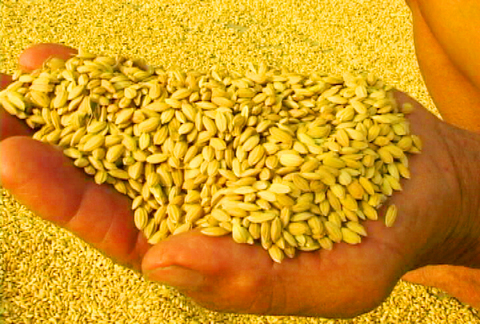
The genre experienced its first revolution around the mid-1980s, when independent filmmakers and social activists picked up their cameras to record and participate in the social and political movements that flowered in those years. The advance and popularization of technology gave filmmakers unprecedented freedom to express themselves with affordable and easy-to-operate filming equipment.
Meanwhile, waves of social movements springing from loosened political control gave filmmakers opportunities to look into subjects and issues hitherto unexplored and unknown to the public.
In the 1990s, government agencies and public institutes started to look at documentary cinema as an important part of cultural industry. Series of collaborations with private groups strengthened the development of the documentary film industry. The quality and quantity of documentaries have both gone up, while training available for young artists has built up a solid base.
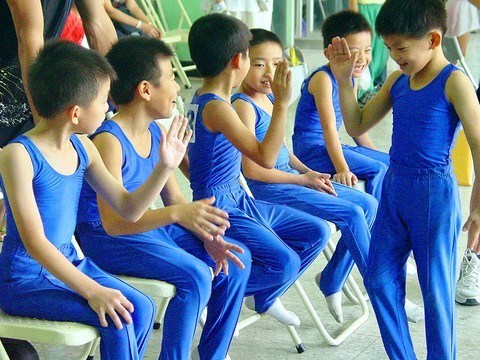
Medium of change
Full Shot Foundation (
"Most of the works made by our members deal with social issues. We go to minority groups, communities, or tribes, we stay with them for a long time, and bring out the issues to generate public discussions in the hope to make a change," said president of the foundation Tsai Jing-ru (
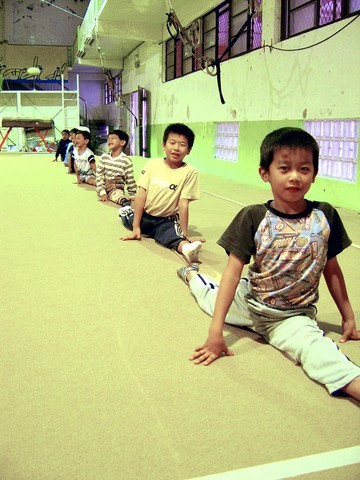
But the foundation does more than just make films. "Since 1990, we have held workshops to train anyone who is interested in documentary making on and off depending on our budget," Tsai said. The Council for Cultural Affairs (
"What we do is very challenging for a small group like us. But we take our social responsibilities very seriously," Tsai said. "We make films to open up dialogue and understanding among communities. We provide knowledge and skills to those who want to join the industry. And we seize any chances to show works in any occasion so that more people can see what has been going on in our society."
Public Television Service (

PTS holds a documentary short-film festival every year. They select a group of applicants and assist the inexperienced filmmakers in completing their works and then air them on the channel.
These days, more and more young movie industry talent is making the move to documentary cinema. Some have turned to it out of a sense of social responsibility; others use it merely as another, cheaper way to entertain audiences.
Social record
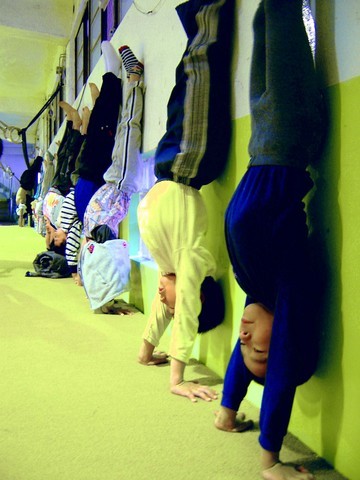
The co-director of Let It Be Yen Lan-chuan (顏蘭權) was driven to documentary making out of a desire to help people. In 1999, she was amont the filmmakers who went down to Nantou County (南投縣) after the 921 earthquake. She "felt that something more than news reports needed to be made" to document what was going on, so she went down on an impulse to start filming in the disaster area. The group also included Full Shot's founder Wu Yi-feng (吳乙峰), who ended up making Taiwan's most successful documentary ever -- Life (reviewed in the Taipei Times on Sept. 16, 2004). The film chronicled earthquake victims' daily struggle to rebuild in the weeks, months and years after the devastation. The story deeply touched audiences and ticket sales grossed over NT$10 million.
Similarly, Yen's Let It Be tells the story of Taiwan's common people struggling in the face of hardship. This time the stars are Tainan County rice farmers in their 60s and 70s. With the younger generation leaving for the city, the farmers face pressure from not only because of their advancing age but also due to the competition of foreign agricultural imports in the wake of Taiwan's WTO membership.
The idea for the documentary was born while Yen and another director, Cres Juang (

"We saw the situation there and we just knew everything would soon change," Yen said. It was apparent that the rice farmers' way of life was on the brink of extinction. "For example," she said, "there was only man left who owned a cow in the whole village. This was very distressing to us, so we decided to make a documentary about it."
After 15 months of filming the elderly farmers and another 15 spent cutting 350 hours of footage down to two hours, the directors had their documentary, but they had no idea what to expect from the public. Yen was afraid that nobody would want to watch the film. "It's long and slow and it's about peasants, which is not popular subject matter in Taiwan these days."
Yet the sweet, simple honesty of the characters in Let It Be won over the hearts of audiences all over Taiwan and the documentary pulled in NT$6 million at the box office.
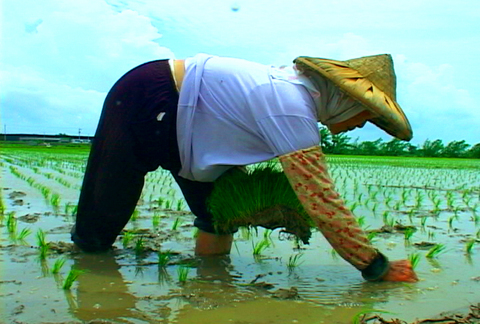
Jumping genres
Lin Yu-hsien (
He says he got into documentaries "by accident" when, a few years ago, he found himself out of work due to the movie industry's slump. "There were no movies for us to work on, so we decided to make our own movies," Lin said. "We didn't have much of a budget, so we chose to start with documentaries."
After making a few short documentaries, Lin headed home to Ilan (
But Lin and his filmmaking partner Chuang Ching-shen (
While not downplaying the success of documentary cinema, Lin feels it is not the solution to Taiwan's movie woes some are hailing it as.
"Lately everybody feels that documentaries are popular and great and that they can save Taiwan's film industry, so we should all just stick to making documentaries. But this is wrong," Lin said. "I think we were noticed because we provided a different style of movie. Taiwan's movies are too depressing: Life is hardship and people don't to go to the theater to see more hardship. Our film is energetic and funny, and that's why people noticed it -- not because it is a documentary."
Jump! Boys can be rented from Blockbuster or Asia1 (

May 26 to June 1 When the Qing Dynasty first took control over many parts of Taiwan in 1684, it roughly continued the Kingdom of Tungning’s administrative borders (see below), setting up one prefecture and three counties. The actual area of control covered today’s Chiayi, Tainan and Kaohsiung. The administrative center was in Taiwan Prefecture, in today’s Tainan. But as Han settlement expanded and due to rebellions and other international incidents, the administrative units became more complex. By the time Taiwan became a province of the Qing in 1887, there were three prefectures, eleven counties, three subprefectures and one directly-administered prefecture, with

It’s an enormous dome of colorful glass, something between the Sistine Chapel and a Marc Chagall fresco. And yet, it’s just a subway station. Formosa Boulevard is the heart of Kaohsiung’s mass transit system. In metro terms, it’s modest: the only transfer station in a network with just two lines. But it’s a landmark nonetheless: a civic space that serves as much more than a point of transit. On a hot Sunday, the corridors and vast halls are filled with a market selling everything from second-hand clothes to toys and house decorations. It’s just one of the many events the station hosts,

Two moves show Taichung Mayor Lu Shiow-yen (盧秀燕) is gunning for Chinese Nationalist Party (KMT) party chair and the 2028 presidential election. Technically, these are not yet “officially” official, but by the rules of Taiwan politics, she is now on the dance floor. Earlier this month Lu confirmed in an interview in Japan’s Nikkei that she was considering running for KMT chair. This is not new news, but according to reports from her camp she previously was still considering the case for and against running. By choosing a respected, international news outlet, she declared it to the world. While the outside world

Through art and storytelling, La Benida Hui empowers children to become environmental heroes, using everything from SpongeBob to microorganisms to reimagine their relationship with nature. “I tell the students that they have superpowers. It needs to be emphasized that their choices can make a difference,” says Hui, an environmental artist and education specialist. For her second year as Badou Elementary’s artist in residence, Hui leads creative lessons on environmental protection, where students reflect on their relationship with nature and transform beach waste into artworks. Standing in lush green hills overlooking the ocean with land extending into the intertidal zone, the school in Keelung